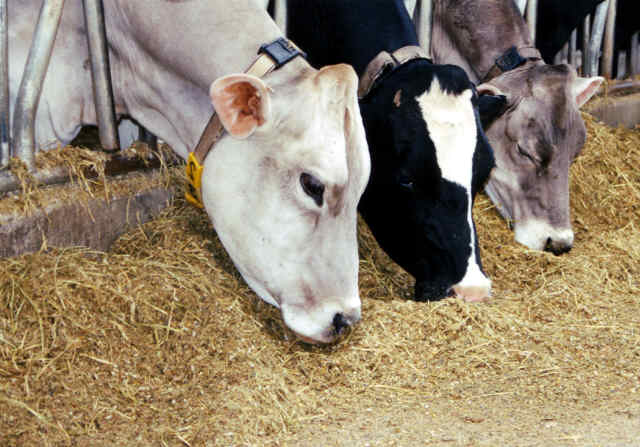

Grain overload is common in cattle, goats and sheep and occurs when animals suddenly eat large amounts of grain. When ingested suddenly, the grains ferment and results in production of lactic acid. This leads to slowing of digestion, dehydration and death in most cases. Grain overload occurs in cattle, sheep and goats of any age.
Signs and symptoms
Animals affected by grain overload are depressed, lay down, have sudden lameness, diarrhoea, dehydration, bloating (of the left side of abdomen). The diarrhoea is normally yellow and has a sweet-sour smell. Animals will usually drink a lot of water but after getting sick will not drink any. Recovering pregnant animals abort about two weeks later
Grain overload is common with corn and wheat like where farmers let loose the animals to eat remnants after harvesting wheat or maize.
While cows will tolerate up to 12kgs daily of grain when slowly introduced, they may not tolerate 10kgs of sudden intake and will come down with grain overload.
Treatment
Grain overload can be treated but this must be done urgently by a veterinary doctor who will decide on the treatment regime based on the severity of the disease. It includes drenching with saline fluids to alter the acidity or surgery to remove the culprit ruminal content and replacement with normal content from a slaughter house. Antibiotics are given in case of secondary bacterial infections which are common with grain overload.
The acidity causes injury to the stomach lining, interfering with digestion. Animals that have recovered from this disease will in most cases show poor growth rate as a result of this damage and should be considered for culling.
Prevention
To prevent grain overload; introduce animals to grains gradually. Ensure animals exposed to grains are also given roughages such as hay. When grazing animals in fields that initially had maize of wheat or are in cases where you suspect expose to a lot of grains, keenly observe the herd for clinical signs like diarrhoea, depression, bloating and weakness which are common with grain overload. If you suspect grain overload, immediately call in a vet to increase chances of survival. When you suspect grain overload and prognosis is poor the animal may be slaughtered as a salvage measure.
 Contact Jaguza Support
Contact Jaguza Support